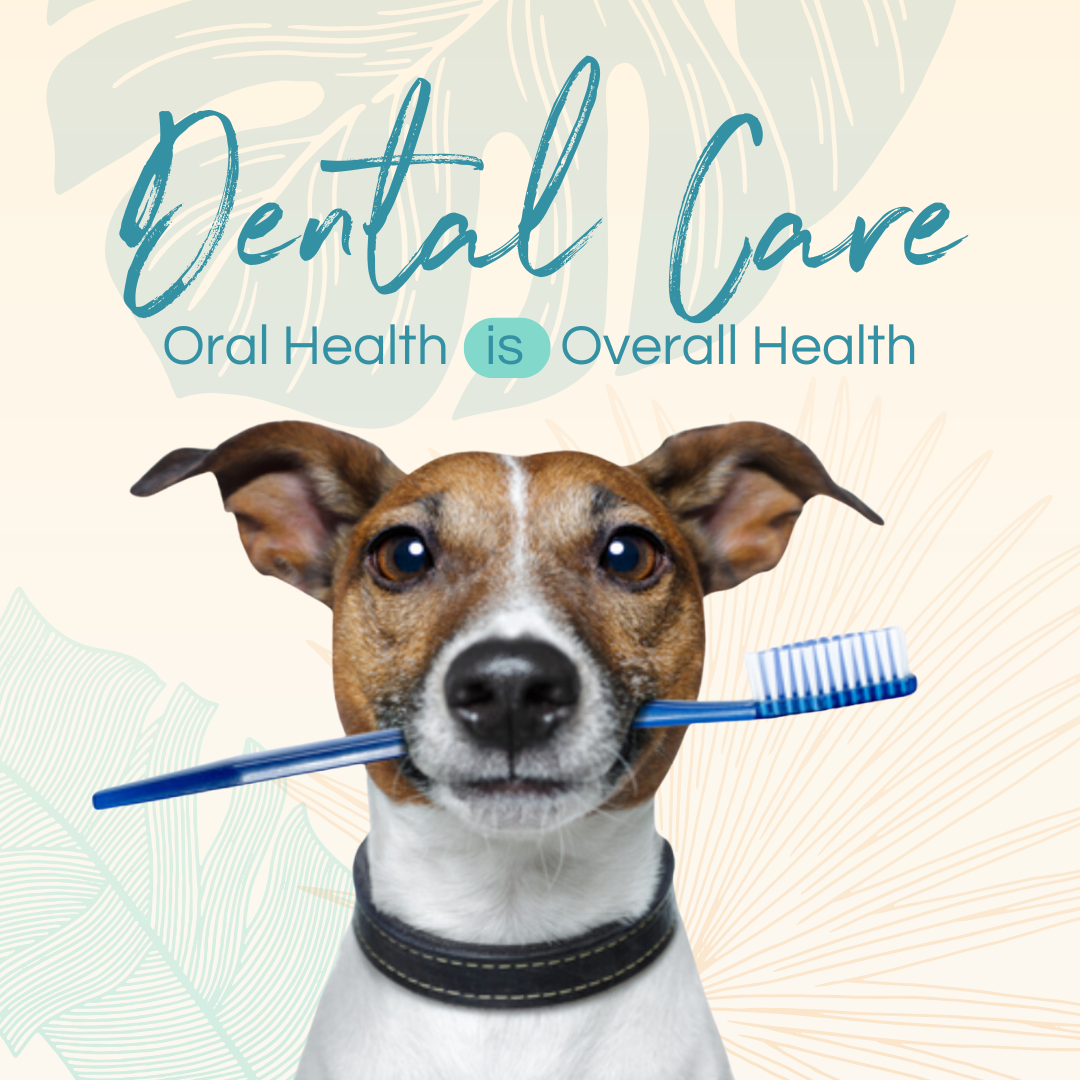
Oral Health is Overall Health
It may come as a surprise that our dogs and cats require similar dental care as we do, including cleanings! Like humans, our animal family members collect plaque and bacteria on their teeth over time. This cannot be cleaned off with chews or by brushing alone. Professional annual teeth cleanings are integral to your animal family member’s oral health, overall health, longevity, and comfort.
Screening: How do I know if my dog or cat needs a professional cleaning?
To determine if YOUR dog or cat needs a professional dental cleaning, start with an annual physical exam. As part of a routine exam, your veterinarian will assess the condition of your dog or cat’s teeth. They’ll also screen for abnormalities such as oral masses, which may need to be addressed. Doctors will also be listening to the heart and lungs, which can inform if your animal is healthy enough to undergo anesthesia. Your veterinarian can then provide information regarding your animal family member’s oral and overall health, and advise on next steps.
Disease: What Are the Risks of Overlooking Oral Health?
Like us our animal family members can suffer some serious consequences when plaque and bacteria are permitted to build up. Minor issues such as light gingivitis will soon evolve into more serious health concerns within your cat or dog’s mouth, and their body at large. Bacteria due to poor oral health enters the bloodstream, affecting vital organs such as the heart, kidneys, and liver. Plaque left unaddressed will cause teeth to decay, leading to bad breath, bone loss, and severe pain. Many caretakers are surprised to learn that their animal family member has been suffering with a painful mouth, as the signs range from subtle, to no signs at all. Screening for dental disease at an annual exam plays a key role identifying evidence of disease and pain.
Benefits: What is involved in a professional cleaning?
Anual dental cleanings performed under general anesthesia are recommended by the Veterinary Oral Health Council. They allow veterinary professionals to remove plaque and tartar buildup using a scaling and polishing machine. The ultrasonic scaler removes build up, and the polisher smooths grooves which collect bacteria. Best practices indicate dental radiographs with every cleaning, which screen the mouth for teeth appearing healthy on the surface, but are in fact broken, infected, or decaying. By doing so, veterinarians may address the tooth which has been silently causing major pain, and has been negatively impacting your dog or cat’s overall health.